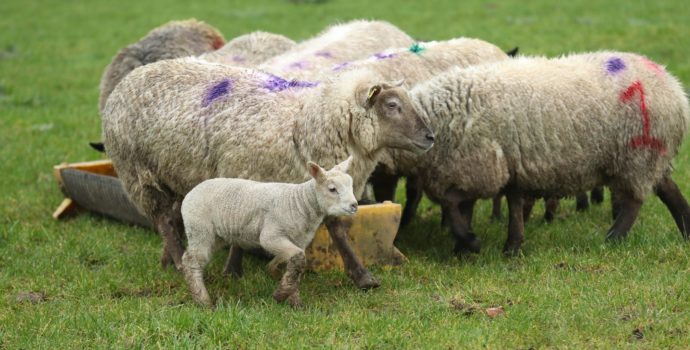Minister Must Pass Back Savings and Increase Funding for the Tb Eradication Programme in Budget 2016

Despite reducing levels of TB and resultant savings for the Department of Agriculture, the costs associated with TB Eradication Scheme control measures have not been reduced for farmers. This is unacceptable and must be addressed in Budget 2016, IFA Animal Health Chairman Bert Stewart has insisted.
He said “Significant progress continues to be made in reducing the levels of TB nationally, resulting in substantial savings for the Department of Agriculture in the TB Eradication scheme. However, for the farmers who experience TB restrictions and breakdowns on their farms, the costs and losses associated with the control measures have not reduced and have, in some instances, increased. This is an unacceptable situation which must be addressed by the Minister for Agriculture Simon Coveney as a matter of urgency in the upcoming Budget through increased funding for the programme.”
The Budget allocation for the TB Eradication Scheme has been reduced from in excess of €60m annually to €35m last year, which includes €12 -14m in EU funding and €5m in farmers’ disease levy contribution, combined with the savings form the discontinuation of Brucellosis testing this year. These savings must be used to reduce the enormous and unacceptable cost burden the Department continues to impose on farmers through the TB Eradication Programme, Bert Stewart said.
IFA has made detailed submissions to the Department of Agriculture highlighting the changes necessary in order to reduce the cost burden of the disease for farmers and their families. The Minister for Agriculture must act on this issue and return to farmers the substantial savings that have accrued within his Department in order to alleviate the unsustainable costs and trauma farmers and their families are forced to endure under the programme.
The IFA submissions include:
Income Supplement and Depopulation Grant
Currently, income supplement is payable only where over 10% of animals are removed from a herd and only on a maximum of 100 animals. It is indisputable that income loss is experienced for each animal removed from a holding; therefore IFA is seeking payment on all animals removed as TB reactors until it is possible for the herdowner to replace them from the marketplace.
Analysis of the Teagasc National Farm Survey (NFS) shows the actual losses for each category of animal lost as a TB reactor on a monthly basis. Current income supplement and depopulation grant rates are in no way comparable to the actual income foregone. IFA is seeking payment of both income supplement and depopulation grants at the actual level of income foregone based on the NFS information.
| Category | NFS loss | *Income Supplement | *Depopulation Grant |
| Dairy Cow | €126 | €25.39 | €228.52** |
| Suckler Cow | €56 | €38.09 | €126.96** |
| Beef Animal/Other Animal | €29 | €25.39 | €76.18** |
* The majority of farmers do not qualify for these payments, **Payment for 4 months
Live Valuation
It is imperative the live valuation scheme returns to farmers the market value animals being removed from the farm as TB reactors would attain if offered for sale on the open market. Changes sought by IFA include the removal of the ceiling in the Live Valuation Scheme and the restoration of the independence of the live valuers.
Hardship Grant
Hardship grant must be available to all herdowners who are forced to maintain extra animals because of a TB restriction, payable at monthly rates comparable to the actual maintenance costs of the animals. For dairy farmers with dairy bull calves, the Department of Agriculture must provide a facility to alleviate the problems caused when the sale of these animals is prohibited from the holding.
Prohibition on Purchasing in to Restricted holdings
Farmers prohibited from purchasing animals into restricted holdings by the Department of Agriculture must be compensated in full for the losses incurred and the resulting forced changes to on farm management practises.
Deer Management Programme
Having established that deer are contributing to the on-going TB problem in certain areas, the Minister must provide increased resources and funding to ensure a targeted reduction in deer numbers is delivered under the control of the Department of Agriculture Veterinary section and Wildlife Unit where deer are associated with TB outbreaks.
Concluding Bert Stewart said the upcoming budget provides the opportunity for the Minister and his officials to adequately address the impact the TB programme is having on farms. The progress achieved nationally in reducing the levels of TB is of no consolation to the farmers who experience breakdowns on their farms and increased funding is urgently required to address the issues outlined by IFA.




